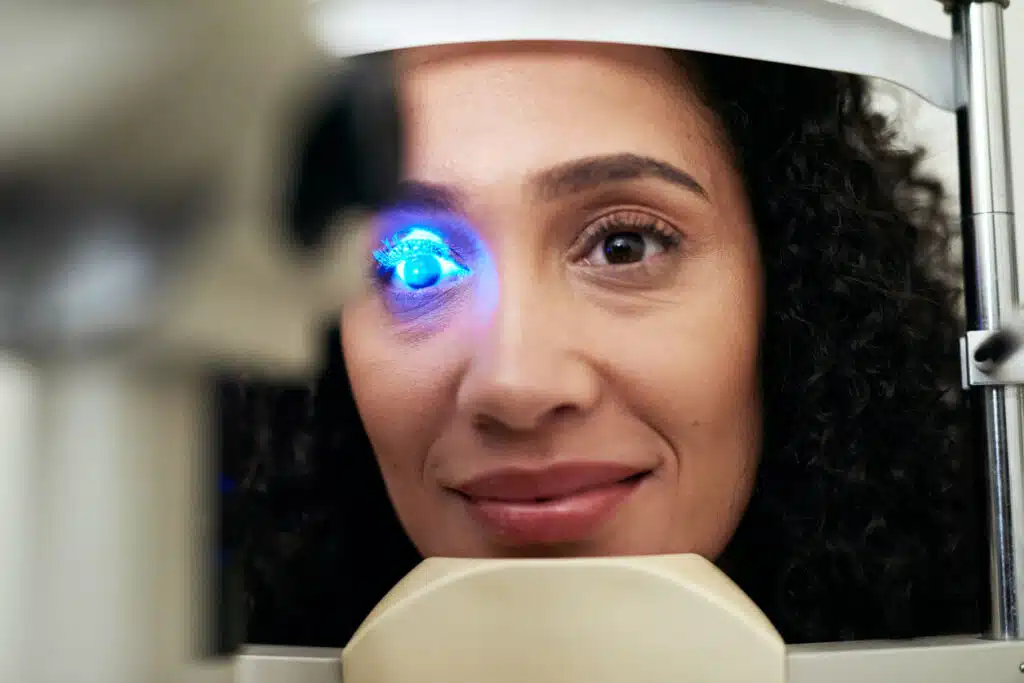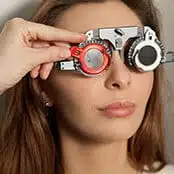
The CDC reports that over 11 million Americans aged 12 and older need help with their vision. Since our eyes are often called the windows to the soul, keeping them healthy is crucial. One of the best ways to do this is by getting a comprehensive eye exam to ensure your vision stays sharp and protected.
Among its many benefits, regular eye exams can catch vision or eye issues before they become more serious. By having your eyes checked, you can prevent vision loss and other problems, which can improve your quality of life.
From preparing for the eye exam to the various tests you may experience, here’s a comprehensive guide to help you prepare.
Preparing for the Exam
Eye exams are an essential part of preventive healthcare and maintaining overall health.
It is recommended that both children and adults schedule an eye and vision health checkup with their provider every two years. Factors such as medical history, current health condition, and age may require more frequent eye exams.
Upon scheduling your appointment, you must prepare for your eye exam to ensure an easy appointment. It is important to arrange the necessary documents beforehand, such as:
- Patient History: This includes your family medical history. You should also bring a list of eye or vision symptoms you may be experiencing or any related concerns you want to discuss.
- Current Prescription and/or Medication: If you use glasses or contacts, bring them along with your current medication to the appointment.
- Insurance Documents: Verify if your insurance covers the eye exam and prepare for alternate payment options if it does not.
What a Comprehensive Eye Exam Looks Like
During your eye exam, your healthcare provider will take a closer look at your eyes and evaluate your eye health. Depending on your unique needs, your provider may perform different types of exams. These tests may include:
- Visual Acuity Test: During this test, your vision clarity is evaluated by reading letters on an eye chart from a distance.
- Automatic Refraction Test: This test uses an autorefractor to measure the eye’s response to light and helps providers determine the correct lens prescription for each patient.
- Visual Field Test: This test assesses your peripheral vision. Your provider will ask you to track a moving object from side to side with your eyes.
- Ophthalmoscopy (or Fundoscopy): Your provider examines your optic nerves, retina, lens, and surrounding blood vessels by dilating your eyes using eye drops.
- Tonometry Test: During this test, your provider will determine whether you have pressure issues in your eyes. They will numb your eyes and use a tonometer to check whether your eyes have increased pressure in certain areas, which is a sign of glaucoma.
Supplemental Testing
Your provider may also include additional testing during your eye exam. This includes a color vision test that checks for color blindness by presenting images with colored dots.
Imaging tests can help diagnose your condition accurately. These diagnostic tests can measure and evaluate the structure of the eye to determine the health issues that affect your vision.
Some examples of imaging tests used during an eye exam are:
- Corneal Topography: A computer-generated structure of the cornea can help your provider determine the curvature of your cornea.
- Fundus Photography and Optical Coherence Tomography (OCT): This test involves either a camera or a computer to generate several structures in the eyes, including the retina and optic nerves.
What Happens After a Comprehensive Eye Exam
Your healthcare provider will evaluate and discuss your comprehensive eye exam results with you. This includes your eye health, its general structure, and your overall vision.
Your provider can help determine the next steps for treatment, if necessary, such as prescription lenses or contacts to correct your vision. Your provider will also discuss whether you need any follow-up appointments.
If your eyes are dilated after the eye exam, you may have blurred vision for several hours. During this time, you should avoid strenuous activities involving your eyes, such as reading, driving, or staring at screens.
Best Eye Doctor in Washington, MO
If you or someone you care about is troubled with vision or just wants to keep their eyes healthy, our friendly staff and competent doctors, including ophthalmologists and an optometrist, at Advanced Sight Center are here to help! We are committed to providing you with the highest-quality eye care, including advanced diagnostic tests and cutting-edge medical and surgical treatments.
For more information or to schedule a consultation, call us today at (636) 239-1650 or use our trusted online appointment request form.
We look forward to serving you!



